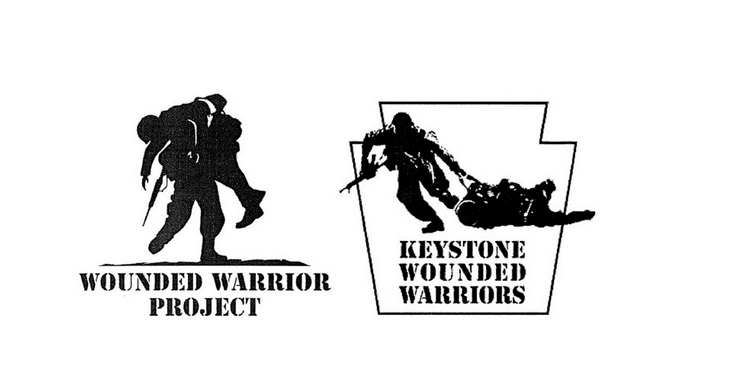It’s a shame that the most high-profile military veterans organization in the country is also the most money-hungry and ruthless. For all the good the Wounded Warrior Project attempts accomplish, an eye-opening article from The Daily Beast found it also bullies smaller veteran organizations for ‘infringing’ upon its brand.
One of those smaller organizations is the Keystone Wounded Warriors, a volunteer-run charity in Pennsylvania. Though the group only makes roughly $200,000 year compared to the Wounded Warrior Project’s $235 million, the larger charity sued it for using the phrase ‘wounded warrior’ and including silhouetted soldiers in its logo.
Keystone Wounded Warriors Executive Director Paul Spurgin, a Marine Corps Vietnam War veteran, told the Daily Beast that the charity has spent $72,000 in legal fees while defending itself from the Wounded Warrior Project.
“That’s money that we could have used to pick up some homes in foreclosure, remodel them, and give them back to warriors. We spent that money on defending ourselves instead,” Spurgin said. “The lawsuit was just the coup de grâce. They want us gone.”
Search ‘wounded warrior’ on Google (or on The SITREP Military Blog) and you will find hundreds of thousands of hits. That’s because it’s a generic term for combat veterans wounded overseas, one that even military branches use to describe their own programs (i.e. the Army’s Wounded Warrior Program, the Marine Corps’ Wounded Warrior Regiment). Similarly, the iconography of silhouetted soldiers or one soldier fireman-carrying his wounded friend are not unique either, and a quick Google search will present you with thousands of stock images near identical to the logos pictured above.
For an organization as profitable and well-known at the Wounded Warrior Project, one can’t help but wonder what suing smaller nonprofits is supposed to accomplish.
“It’s the big guy beating up on the little guy,” Spurgin said. “We won’t make the same as we did last year. What’s it really about? If they keep blowing up [in profits] 50 percent every year, and we’re going to go backwards this year, what is the point? The money that we get in donations to help warriors—is that going to make or break them? They’re whining about a small number of legitimate nonprofits. I’m at a loss: We all should be working together.”
Nonprofit watchdogs Charity Watch and Charity Navigator both give the Wounded Warrior Project poor ratings. Considering what’s going on with Keystone Wounded Warriors and its similarly named compatriots, we can see why.




































